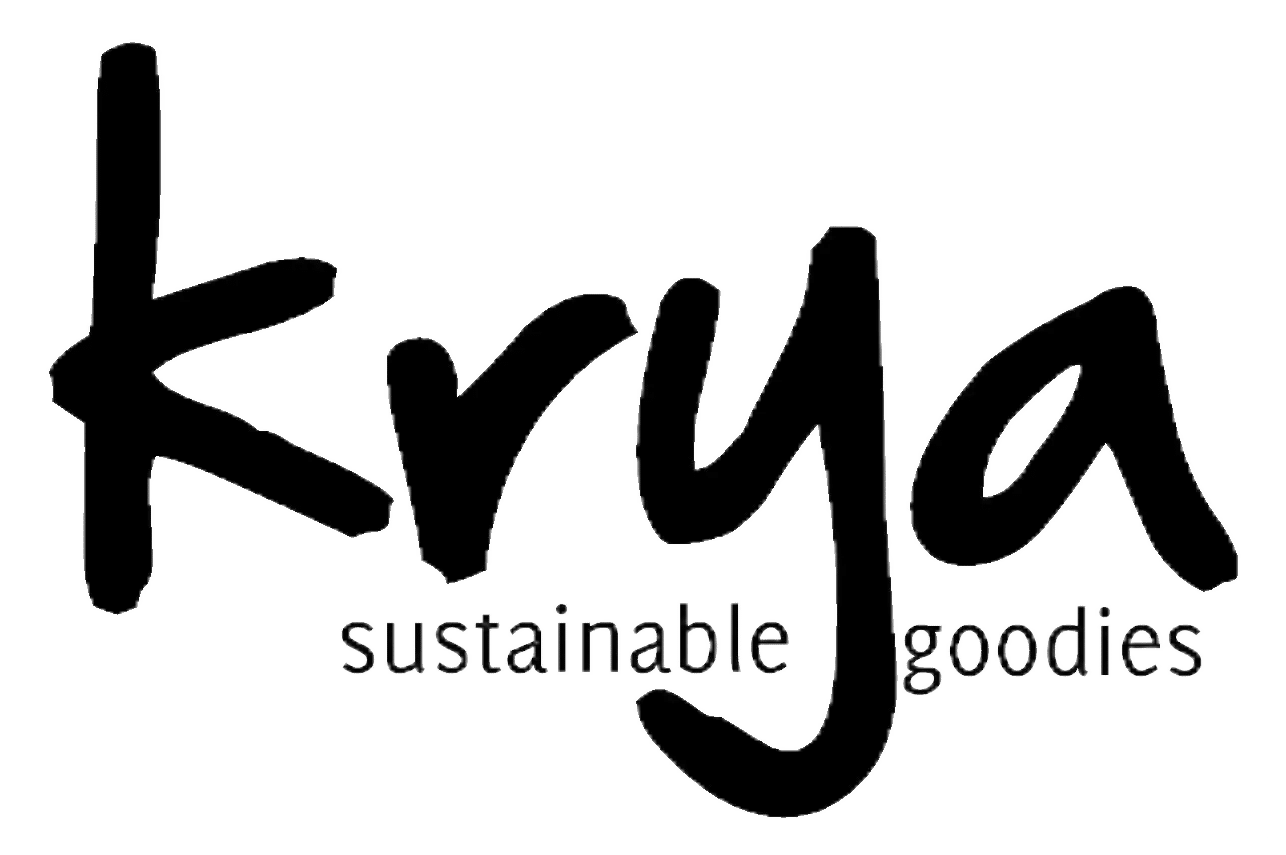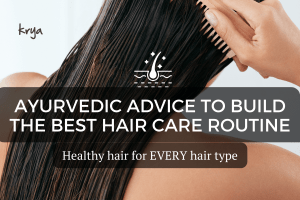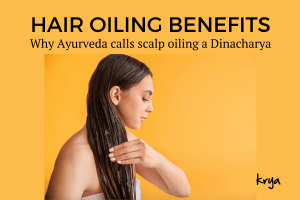This post was last updated on August 12, 2021 by Preethi Sukumaran
It is no secret that we at Krya think a shampoo and a synthetic hair dye are the very 2 worst villains to hit the Hair Universe. A shampoo is to us a much bigger Super Villain than even a synthetic hair dye, simply because it seems so innocuous, pleasant and definitely not scare inducing. This in no way exonerates a synthetic hair dye from being a super villain. So if you spot one, stay away from it, keep your kids, dogs and cats away from it, and lock your doors to prevent its entry into your home!
Apart from SLS and SLeS, the industrial degreasers used to clean cars which are the main cleaning agents found in a synthetic shampoo, a shampoo contains other nasty minions. Ethanolamines, parabens, fragrances, DEA, silicones are the many many classes of supper villainous ingredients you are likely to encounter in your shampoo.

Even an industry funded body like the Cosmetics Ingredient review is cautious about the use of ethanolamines in shampoos– they ask users, (i.e. us who love our synthetic shampoo)s, to use Ethanolamines only briefly for very short periods of time, scrub vigorously to ensure there is no residue left on your hair and to not use it continuously.
Contrast that with the Shampoo industry’s prevalent paradigm: where we are asked to wash frequently, even every single day, and rinse and repeat shampooing to ensure our hair is “clean”.
One of the properties we have come to fear in some of the most toxic chemicals used on the planet, the pesticides / fungicides / herbicides that are sprayed on your food is this: their ability to persist in the atmosphere, long after they have been used.
And this property of persistence exists even in the products we use on ourselves like our synthetic shampoos.

A recent paper published by researchers at Cornell University is titled “Molecular cartography of the human skin surface in 3D”. The researchers have attempted to do something utterly fascinating: capture 3D photographs of our microbiome and the chemicals that reside on our skin to understand how the two interact.
As a part of this research, the volunteers were asked to forego shampooing and bathing for a few days and 3D photographs were taken before and after this abstinence.
The persistence of SLS on your scalp from your shampoo
In the picture given below, on the male volunteer, SLES persists on the scalp several days after the last shampoo – and we assumed these chemicals would get washed right out.

On the female volunteer, avobenzene lingers on her neck several days after a sunscreen was used and washed off, lingering on despite the shower and the soap used after sunscreen application.
We’ve said this before: the skin is one of our key organ groups in protecting our body from invasion. Unfortunately, the skin is also extremely susceptible to the synthetic formulations we apply, rub and wash it with. The dermal route is one of the fastest routes of letting synthetic chemicals bypass your powerful intestinal tract (where they would be made less harmful), and directly invade your major internal organs.
Remember what we had to say about Parabens? 60% of breast cancer tumours were found in the area where deodorants are sprayed – and this area represents only 1/5th of the entre armpit area.
Co-incidence? We think not. We think that everyone should avoid using a synthetic shampoo, and actually any manner of synthetic personal care product. (This may come as a surprise to you, if your have been looking up phrases like a “natural hair fall remedy shampoo”, or an “organic dandruff shampoo” or a “sulphate free shampoo”! )
But if you are still transitioning and can’t seem to give up your synthetic shampoo completely, here is what we suggest.
5 ways to protect your hair from your synthetic shampoo:
- Start by oiling your hair really well
A good herbal hair oil does many things for you, as we often write about. In Ayurveda, hair oil exists to cool the brain and eyes and regulate pitta dosha. But when you want to protect your hair from your synthetic shampoo, your herbal hair oil is your best friend and hair bodyguard.
Oiling your hair strands and scalp well before using your synthetic shampoo, helps form a fantastic barrier function between your hair and your shampoo. It also gives the SLS in your shampoo something else to work on outside of your hair’s natural sebum, helping leaving your sebum somewhat intact.

Also, unoiled hair is very vulnerable to cuticular damage by synthetic shampoo. Pre-oiling helps limit this damage to some extent.
Krya recommends frequent oiling in small doses during the week. For your pre-shampoo oiling, we recommend doing it ideally an hour before washing your hair.
- Rinse your hair extremely well with cool water first before using your shampoo
Water is the first cleanser that your hair needs. The cleaner the water, the better for your hair, so avoid salty, hard or chlorinated water as much as possible. Water itself is a very good cleanser, so rinsing your hair thoroughly before shampooing helps remove some part of the dirt, dead cell and grease build-up and excess oil on the hair. Rinsing helps you save on using more shampoo.

Krya recomends: Cool water additionally helps seal your hair shaft so it helps keep your hair’s cuticular structure in decent shape. You should be spending ideally atleast 3 – 5 minutes in the rinsing process.
- Use less, far less shampoo than recommended. Dilute even this quantity severely.
Most of us over dose on synthetic shampoos. The foam compels us to over wash with the shampoo even when it is not needed. As we have stated above, shampoos are extremely persistent on hair. And as we are unable to see any residue is left behind, we assume w have washed off the shampoo from our hair, when in fact we have not. And a little goes a long way to both clean and damage your hair.

Foam does not cleanse your hair. Your surfactant does. Because we are all so addicted to foam, shampoos contain foam boosters to make us think the shampoo is doing a very gentle but through cleansing. As you have been reading, this is far from the truth. Diluting your shampoo will make it foam LESS, but this is MUCH BETTER for your hair.
Krya recommends: halving or quartering the quantity you normally use, and diluting the shampoo by 50% with plain water.
- Shampoo less Frequently. Maximum twice a week.
We have all been fed the manufacturer led myth that we ought to be shampooing every single day. We have been threatened that not doing so will make our hair prone to dandruff, make it dirty, increase hair fall, etc. Nothing could be further from the truth.
Frequent washing strains the hair’s sebaceous glands, forcing them to work faster between washes to produce sebum. As you age, when sebum production starts to go down, this tends to become next to impossible for your scalp to keep up with. So, when you over wash, you will find hair becoming oilier between washes when you are younger, and extremely dry as you age.

This leaves the scalp in a permanent state of imbalance: too oily and attracting dirt and fungal dandruff, or too dry, aggravating dry scalp dandruff and hair that break very easily.
Krya recommends: If you are used to frequent shampooing and want to transition, use plain water to rinse your hair frequently. Restrict shampooing with your synthetic shampoo to once or only twice a week.
- Here’s what we recommend most of all : switch to a better hairwash product
If using a synthetic shampoo is going to come with so many disclaimers, do you really want to continue using one? Try one of Krya’s all natural hairwashes instead.
Our hair washes come with their own set of disclaimers, but there are a wildly different set of disclaimers from synthetic shampoos. Our hair washes are powders and are super low foaming. We use only natural herbs as surfactants, so they foam only about 20% as much as your synthetic shampoo.

As we use whole herb powders, you might find hairwash residue in your hair if you don’t rinse well. And as we are all used to much stronger shampoos, you may find that the hairwash does not remove oil as well as your synthetic shampoo in the beginning. Our natural hair washes have a transition period, but once you get over this phase, you will find that they work really well to cleanse your hair WITHOUT the side effects that a synthetic shampoo has.
Oh, and did we mention: you can skip the conditioner with our hair washes!
Krya’s range of natural haircare products can be explored here:





chlorinated water kills the hair. However Krya hair wash acts as a balm – work with what we have 🙂
I am using Krya classic hair wash ,hair mask n hair oil from 5 months but my hair fall is not stopping and my hair is still very rough.Can you plz suggest me which range of Krya shampoo will suit me better? Reply plz…